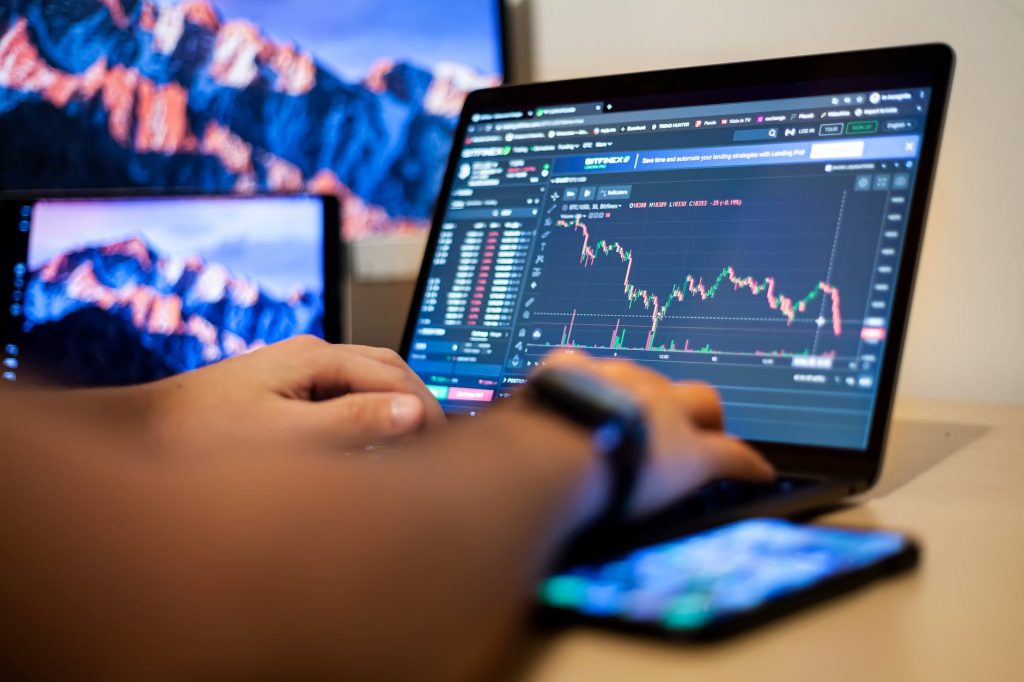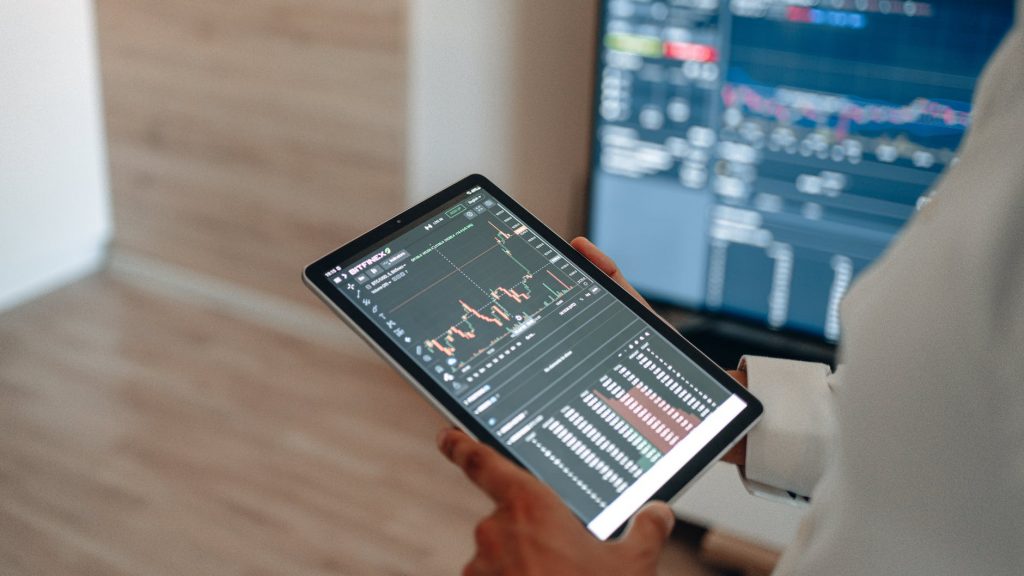The STP broker businesses model has several benefits for retail forex traders vs ECN and dealing desk brokers. In this review, we’ll discuss the meaning of STP and its pros and cons. We also list the best STP brokers for forex and CFD trading.
What Is An STP Broker?
STP stands for Straight Through Processing and is a type of technology used by brokers to electronically pass trades directly to the market. STP forex brokers execute trades on behalf of clients by sending them straight to liquidity providers, such as banks or interbank exchange houses. Trades do not pass through a dealing desk, instead, they go directly to the market.

No Dealing Deck Vs Dealing Desk
STP brokers are a type of No Dealing Desk (NDD) broker, meaning they do not use a dealing desk to complete a trade. Dealing desk brokers, known as market makers, fill the opposite end of a client’s trade. They do this either by finding another client to take the opposite side or by taking the trade themselves.
Since market makers do not connect directly to the wider market, there is a limited number of clients that can take the opposite side of your trade.
As a result, brokers may purchase the stocks a trader is selling to create the market themselves.This is common practice among market makers, who have slightly different licenses than regulated STP forex brokers.STP brokers are also known as A-book brokers, while market makers are known as B-book brokers.
Differences Between STP and ECN Brokers
ECN brokers, which are another type of NDD provider, operate in a similar fashion to STP brokers by sending trades directly to the market.However, ECN brokers act as a liquidity hub, bringing together banks and financial institutions that compete to take the opposing side of your trade.
Advantages of Using STP Brokers
STP brokers are often preferred by retail traders because they offer many benefits, including:
- Fast Processing Speed – STP brokers use advanced technology to execute trades electronically and at a high speed, which is not the case with market maker brokers, who may take longer to process trades manually via a dealing desk, resulting in requotes in times of market volatility.
- Accurate Quotes – STP brokers trade directly with the market, which ensures that their quotes reflect current prices.Market makers, on the other hand, may offer artificial quotes to increase their profit margins.
- No Conflict of Interest – Unlike market maker brokers, STP brokers do not profit from their clients’ losses since they do not take the opposite side of the trade.
This may lead to some brokers operating in ways that may conflict with their clients’ ability to win. For instance, they may provide artificial quotes or selectively choose which orders to fill. On the other hand, STP brokers are directly linked to the market, and therefore, have no profit motive behind client losses. In fact, if clients make a profit, they may often invest more with the broker whose revenue will grow.
- Lot sizes – ECN brokers usually limit trades to a minimum lot size of 0.1, which is equal to 10,000 units of the base currency. This is because banks and other financial institutions operate on this minimum trade size, which can be challenging for retail traders who may want to trade smaller values. STP brokers can often provide lower minimum lots. For instance, Admiral Markets and XTB have a minimum lot size of 0.01, while Interactive Brokers has no minimum order size, and traders can place a trade for as little as one unit of the base currency.
Cons of STP Brokers
STP brokers operate with most of the benefits of both ECN and market-makers, so their drawbacks are limited:
- Spreads – STP brokers typically offer wider spreads compared to dealing desk brokers. This is because dealing desk brokers make money from their clients’ losses and do not need to make as much revenue through spreads. However, with STP brokers, their revenue comes solely through the spreads and commission they offer.
- Hybrid models – Some dealing desk brokers may take a hybrid approach.
Some brokers may choose to pass trades onto the market while taking the other side of the trade for others. It may be difficult to determine which brokers operate in this manner. Contacting the broker’s customer support team via phone may provide clarity.
Identifying STP, ECN & Market Maker Brokers
It can be challenging to identify whether a broker is a genuine ECN broker, STP or market maker. Some brokers may not disclose their business model to clients. However, some indicators may help determine this:
- Minimum lot size – Brokers offering a minimum lot size below 0.1 may not be an ECN broker. The lowest minimum lot sizes are typically offered by market makers and STP brokers.
- Spreads – Brokers claiming to have the tightest spreads and be the most cost-effective may be market makers. They often profit from client losses and may not need to generate revenue through spreads. Additionally, ECN brokers usually offer tight spreads but charge commissions to make a profit.
- Scalping rules – Scalping is a trading strategy that exploits market quote inefficiencies for profit. Market makers may find it challenging to fill orders at the necessary speed for scalping strategies. Therefore, forex scalping is commonly not permitted at market makers and is instead more prevalent at ECN and STP brokers in many countries, including the USA, UK, Australia, South Africa, and more.

Final Word On STP Brokers
STP brokers have the technology to execute forex trades directly with the market.
They offer quick processing times and accurate quotes whilst allowing small lot sizes which makes them a good choice for retail traders.
However, it’s not always easy to know if your broker follows an STP model.
If you start to experience slippage, quotes you feel are not in line with the market or requotes that you’re not happy with, you may want to switch to one of the STP brokers in our list above.
FAQ
What Is An STP Broker?
An STP broker routes trades directly to the market using Straight Through Processing technology.
They follow a No Dealing Desk model (NDD).
STP brokers are usually the preferred choice for retail traders due to accurate market quotes and fast processing.
How Are STP Brokers Different From ECN Brokers?
STP brokers are similar to ECN brokers in that they both use no dealing desk models that offer direct market access.
My Broker Offers An ECN Account, What Does This Mean?
ECN accounts promise faster execution speeds and low spreads like those that institutional traders benefit from. Your trades will be executed on the live forex market, as opposed to going through a dealing desk or STP account. The downside is that ECN often requires high minimum deposits and large minimum trade sizes.
How Can I Tell If My Broker Is A Market Maker?
Brokers may make it tricky to unpick their business model as no dealing desk brokers are often preferred by retail traders. With that said, there are some clues that you can look for. For example, stringent rules on trading behaviours, extra tight spreads and regular requotes indicate they could be a market maker.
Are NDD Brokers And STP Brokers The Same?
Yes, an STP broker is a type of no dealing desk (NDD) broker.
